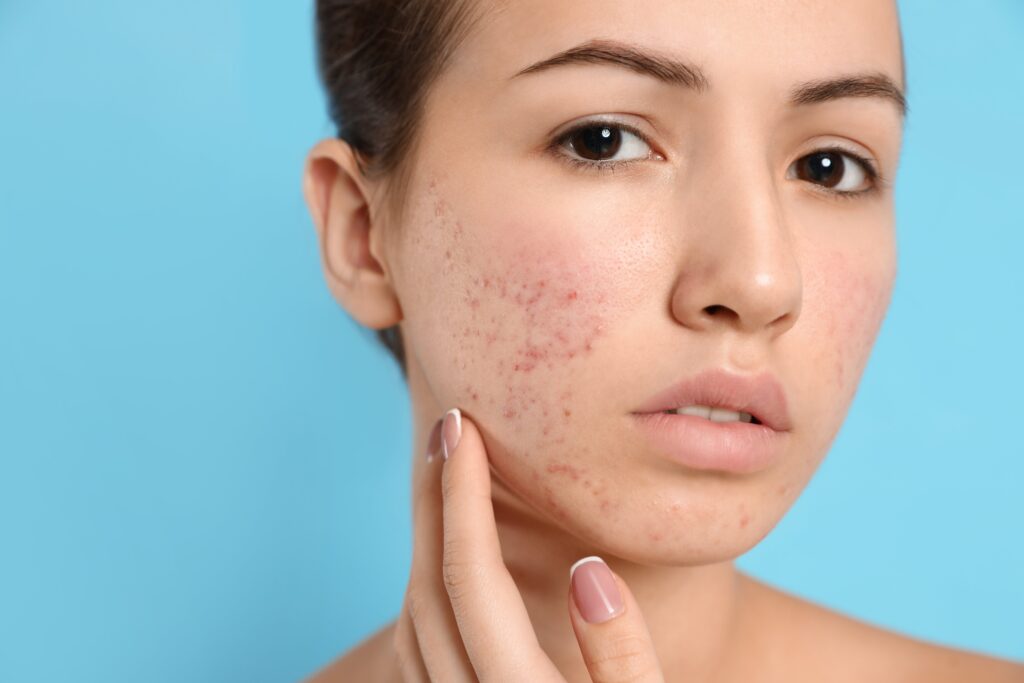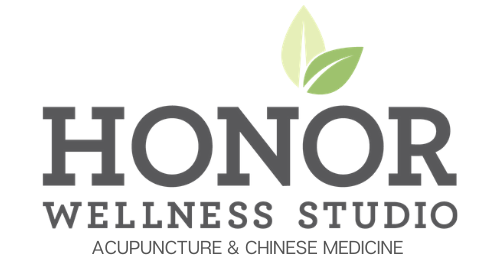
What is Acne?
Our skin is covered with small holes called pores, which contain a hair and an oil gland. When our pores get blocked by oil or dirt it can sometimes cause breakouts of pimples. There are many different types of pimples (like blackheads, whiteheads, pustules, and cysts), but the overall skin condition is called acne. In this article we’ll discuss some of the causes and treatments for acne, and how Chinese Medicine can help.
Causes of Acne:
Acne is caused by foreign substances blocking your skin pores. This could be dirt, oil from your sebaceous glands, bacteria, or dead skin cells. We need a small amount of oil to keep our skin soft, but when our glands produce too much oil it can lead to acne. Other factors like poor sleep, stress, changes in hormones, and some medications can also contribute to acne.
How Can I Treat Acne?
You can treat acne using many different methods. Some of the most common treatments include home remedies, lifestyle changes, and medications. In some cases, medical procedures such as chemical peels and microdermabrasion may also be possible treatment options.
Home Remedies and Lifestyle Changes:
Keeping your face clean is an important part of acne treatment. You could try changing your pillowcase weekly or even daily, washing your face twice a day with warm water and a gentle cleanser, and avoiding touching your face. Touching your face or popping pimples can spread the acne to other areas. Be sure to use skin care products that say “non-comedogenic”, which means they won’t clog up your pores. You can also try applying aloe vera gel or tea tree oil to pimples, which may help them to heal.
Medications:
There are two types of medications for acne: topical creams, and oral medications. Topical creams are applied directly to your skin, and usually contain ingredients like salicylic acid or benzoyl peroxide. Oral medications are also known as systemic medications because they affect your entire body. These can be prescribed by your doctor.
Oral acne medications may include hormonal birth control pills, antibiotics, or isotretinoin. Birth control pills may help to reduce pimples if your condition is caused by hormonal imbalances. However, these are not safe to use if you’re pregnant. Antibiotic medications (like tetracycline) work by fighting the infection from the inside out. In severe cases, isotretinoin is sometimes prescribed. This is a strong retinoid that works by making your oil glands smaller and reducing the production of skin cells that block your pores.
Although these medications may reduce your acne symptoms, they can also cause side effects. Isotretinoin causes severe side effects, and it is only prescribed in rare cases. It’s crucial that you research fully before taking any medication, as you could end up with a more serious problem than you started with.
Chinese Medicine for Acne:
Traditional Chinese Medicine has been used for thousands of years to treat many health conditions. Interestingly, it can also be used to treat cosmetic issues like acne! Two main techniques in Chinese Medicine are Chinese Herbal Medicines (CHMs), and acupuncture. Both can be used to address underlying imbalances within the body that can cause symptoms like acne.
You can use Chinese Herbal Medicines (CHMs) to treat acne internally as well as externally. Internal causes of acne, such as organ function imbalances, can be treated by taking a Chinese herbal tea or decoction, while external symptoms like pimples can be treated by applying Chinese herbs to your skin. There are many healing properties in Chinese herbs, and researchers have found that “Anti-inflammatory and anti-bacterial effects were commonly found in the CHM network, and CHMs with anti-androgen, anti-depressive and skin whitening effects were frequently used in combination.”
Acupuncture is where thin needles are applied to specific points on your body, to access certain energy meridians. While needles are sometimes applied to your face (which can help to promote healthy blood flow), acupuncture is more commonly used to address internal imbalances. This means the needles themselves might be placed in other areas of your body such as your arms or legs. The great thing about acupuncture is that it’s effective but has a very low risk of side effects. A little minor bruising at the needle sites is the most common side effect. This is quite rare, and you can reduce the risk even further by choosing a qualified and experienced acupuncturist.
Conclusion:
Acne is when you experience breakouts of pimples on your skin. This is caused by debris like dirt or oil blocking your skin pores. There are many home remedies available to treat acne, as well as many medications. However, medications always come with the risk of side effects. Chinese Medicine is a great way to treat acne because it is very safe and addresses the underlying causes of your symptoms.
References:
Burke, D. & Coelho, S. (2022, February 23). Everything You Want to Know About Acne. Healthline. https://www.healthline.com/health/skin/acne
Chen, H. Y., Lin, Y. H., & Chen, Y. C. (2016). Identifying Chinese herbal medicine network for treating acne: Implications from a nationwide database. Journal of Ethnopharmacology, 179, 1–8. https://doi.org/10.1016/j.jep.2015.12.032
Quinn, D. (2021, May 11). Acupuncture for Acne: Treat Your Skin with This Ancient Treatment. Healthline. https://www.healthline.com/health/acne/acupuncture-for-acne
Roth, E. (2018, August 22). Acne Treatment: Types, Side Effects, and More. Healthline. https://www.healthline.com/health/acne-treatment
